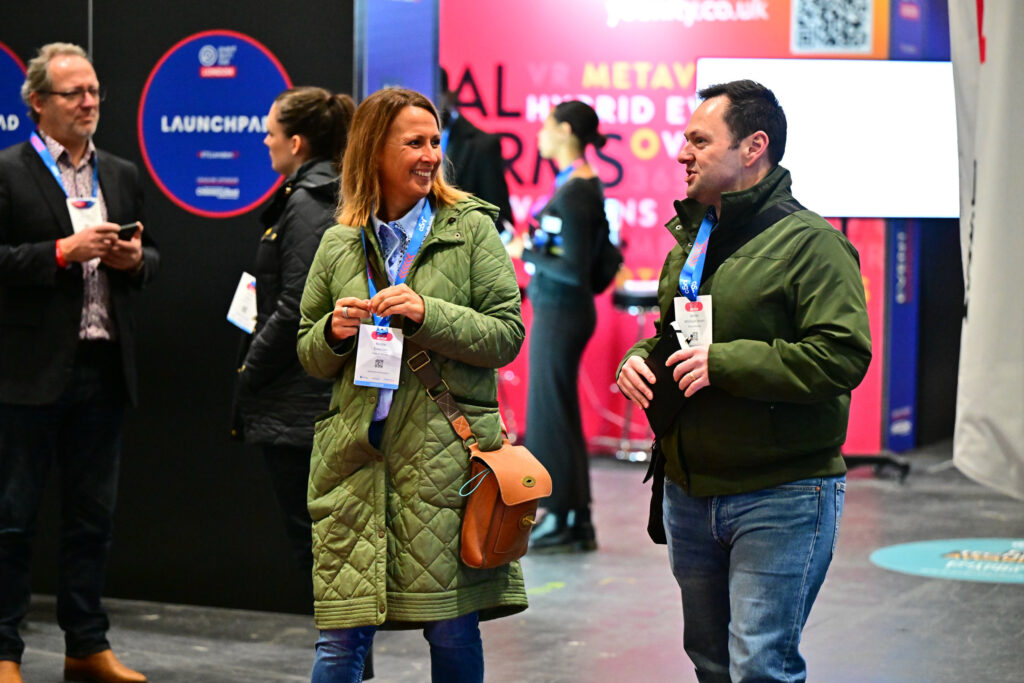From Coachella to Glastonbury, festival goers from all over have been returning to major venues and muddy farm fields for star-studded concerts and music festivals this summer. Saroosh Gull, CEO of Eventcombo, believes that the return of Glastonbury marks that the time is now for event organizers to tap into the opportunities of hybrid concerts and move music festivals into a lucrative global streaming world.
Watching live opera, rock, pop and theater performances at home became the norm for many people during lockdown. So what does the future of music festivals look like? The answer is hybrid.
In 2019, the events industry had a landmark year with a reported value of $1.2 billion and a trajectory of increasing its worth to $1.6 billion by 2028. In particular, the music festival industry was predicted to experience the most significant growth of some 13%. Yet, two years ago, summer music festivals were silenced by the coronavirus pandemic, which severely disrupted the industry and created unprecedented changes that resulted in significant losses in revenues, and millions of people being laid off or furloughed with severe loss of income.
Since then, the industry has been severely crippled, with many companies declared bankrupt, others forced to close operations entirely, millions laid off from jobs, and the industry constrained for two Covid-19 stricken years. The sudden, and then frequent, disruptions and continued uncertainty about the changing restrictions on travel, combined with the continual spread of Covid-19 created ambiguity around the return of live events, be that religious celebrations, comedy or, of course, musical festivals.
Saroosh says, “The challenge for music festivals, once entirely dependent on face-to-face interactions, has been to adapt and shift rapidly into digitalisation, combining the “real thing” with virtual opportunities of attending events.”
“Event organizers across the industry had to rapidly embrace virtual events to connect and sustain their relationships with their audiences, as well as grow their digital reach until in-person events became a feasible option again. Now, two years on, we are finally at a point in which in-person events have a minimal chance of being disrupted.”
While Covid-19 remains prevalent across the world, the introduction of vaccines has led to the continued relaxation of restrictions, and enabled the industry to host face-to-face events without the constraints it has been faced with. For the first time since 2019, festivals like Glastonbury are finally returning, with more than 200,000 people making their way to the site this week.

While the easing of restrictions has incited a rush for people clamoring to return to live events with full capacity crowds, a 2021 survey found that 43% of people remain uncomfortable with this, and the use of virtual events for most of the previous year has highlighted the changing landscape for music festivals, with the growth of digital audiences creating demand for a more dynamic format in future.
As an evolving industry, the new standard should be to jointly cater to both in-person and digital audiences through hybrid events. Viewed as the future of the events industry, hybrid events combine in-person elements with virtual or broadcast elements that enable both physical and digital audiences to enjoy. Clear demand for hybridized events was seen in a recent industry survey of more than 3,000 consumers spread across the U.S., UK, and Australia, which found that 53% of respondents plan to attend both virtual and physical events in future.
The best example is Glastonbury 2022, as it will continue on with its 2019 format by hosting live experiences with more than 200,000 in-person attendees, whilst simultaneously having more than 35 hours of coverage streamed online and on TV to millions of people around the world.
Saroosh Gull, CEO of Eventcombo, believes that as the world shifts into a more digital, accessibility-orientated, and environmentally-focused future, the hybridized format is the ideal solution for music festivals.
He says: “With streaming and social media having a large, negative, impact on the music industry as a whole, hybrid events offer unique and intimate experiences for fans by expanding the reach of music festivals beyond venue capacities as it allows global audiences to similarly enjoy.”
Not only does the hybridized format benefit festival goers, but it creates unique opportunities for sponsors, as digital elements increase exposure and brand awareness, and in turn for organizers, could attract more sponsorships to events. It also means content can be long-lasting, allowing audiences to enjoy it for longer periods, as well as the potential to monetise on-demand content by charging extra for extended access.
Saroosh continues: “Hybrid events allow for heightened accessibility and enhanced content engagement. As seen with Glastonbury, utilizing hybrid formats can create increased opportunities to reach and engage with audiences previously unattainable due to financial, health-related, or logistical barriers. Digital elements create incentives that heightens audiences’ connectivity with the event while working seamlessly with the physical audience.”
“As we have witnessed over and over the last two years, circumstances can change on a whim. With a hybrid format, music festivals can easily adjust to changes without experiencing similar extents of revenue loss. Instead, this unique opportunity allows festivals to expand their audience reach through a more cost-effective, and accessible platform that provides a unique opportunity for music festivals to reconnect with audiences and aid in the recovery of the overall industry.”

Hybrid events can also enable mini and micro events to be more frequent, which may be more suitable and popular with audiences, as well as more financially viable than an annual mega-event that has to draw in huge physical crowds. Aside from Glastonbury, the Cannes Lions International Festival of Creativity, currently being held this week, is live in France and available over digital formats. Phillip Thomas, chairman of LIONS stated: “Building Cannes Lions as a hybrid festival will allow us to continue to reach our expanded creative community who we have welcomed through our digital initiatives over the last 18 months.”.
With clear examples of events of similar formats being monetizable and economically viable, without compromising the value and quality of the performances, Saroosh believes there is clear indication of hybrid events being the way forward for festivals in an increasingly unpredictable world.




Responses